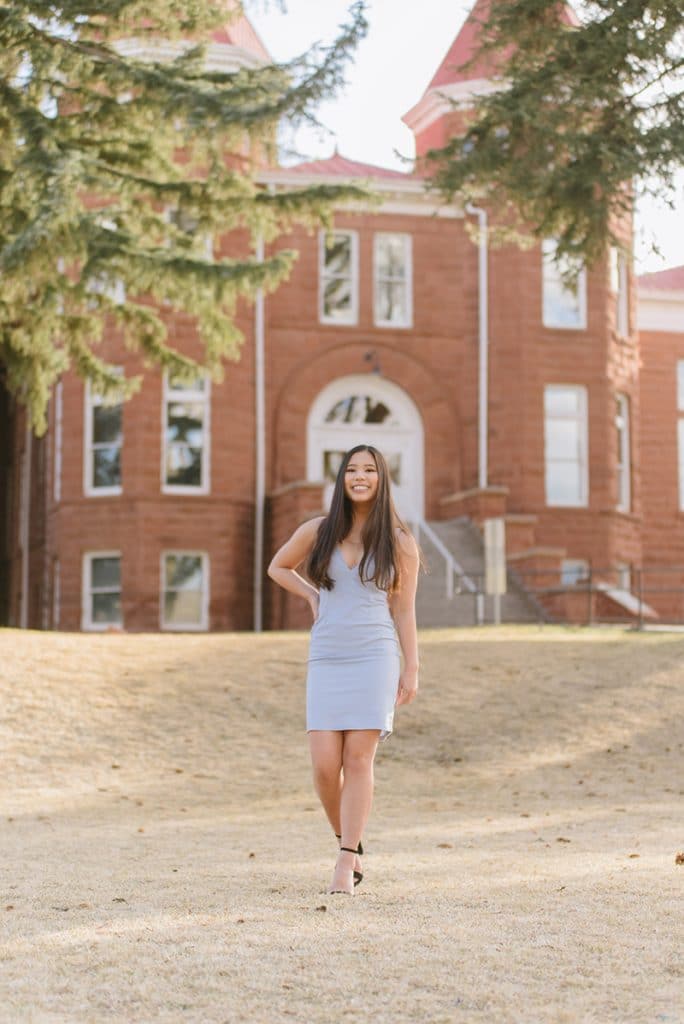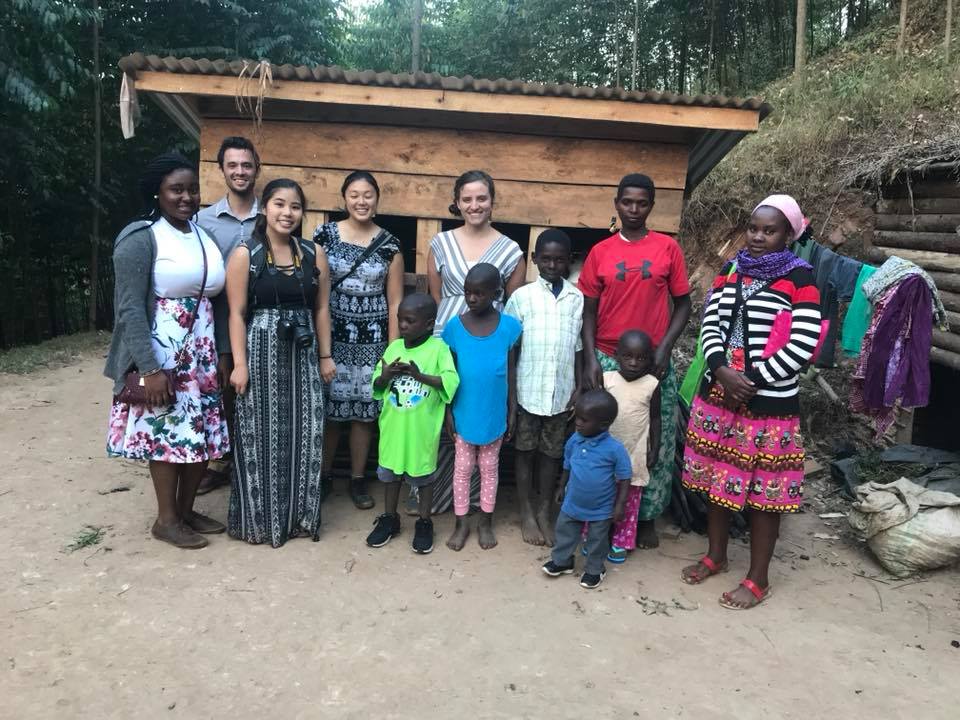Christina Vu’s life changed the moment a healthy fetal heartbeat sounded in her ears, ringing through a stethoscope pressed against the belly of an African mother in Kabale, Uganda.
It changed again days later when she met children who had epilepsy but no access to anti-convulsant medication and families who couldn’t afford insulin shots for their children with Type 1 diabetes and again when she met a woman who walked to the clinic in Kabale to get medication to manage her HIV. The woman had walked that path every month for 10 years.
Vu became a different person from the summer she spent in Uganda. The Northern Arizona University student, who graduates this month with a degree in biomedical science, was interested in rural medicine and women’s health, so the program she found seemed like a perfect fit. But it didn’t prepare her for the triumph and heartbreak she faced at that clinic in Africa or how it would define her career goals and approach to life.
“My experience in Uganda changed my outlook on education because it gave me a real, tangible goal to work toward,” Vu said. “I want to finish medical school, become a gynecologist and move to Kabale, Uganda—not to change their culture to what I think it should look like or as a ‘volun-tourist;’ I just want to play a small part in the bigger story of international health and equality.”
Vu, an Honors College student who is from Chandler, came to NAU because she wanted space to learn and grow as a person. And she found it, taking perhaps more space then she originally planned when, in 2017, she learned about an internship focused on maternal health, HIV and the reality of health access.
“I found out about the program only about a month before summer, so I applied, went to the CIE orientation and signed up for travel vaccines all within a week, which was so hectic,” she said. “I remember crying on the plane for hours after I took off from New York because I was so terrified and unsure of what I was doing. However, once I got over there, I felt like I was home.”

Vu is full of stories about her summer there, remembering the bus rides along bumpy, unpaved roads to small towns without clean water or electricity, where people slept on woven mats on the ground. She also remembers the love and care the doctors, nurses, midwives and other counselors had for their patients, many of whom came into the city to seek care, and feeling glad she was a part of it.
“I saw so, so much suffering during this time, but I also found a resilient, resourceful culture that I admire and people who I will look up to for the rest of my life, like single mothers and ex-prostitutes who banded together and taught each other how to craft and sew to create a shop called Garden of Prosperity,” Vu said. “I met a man passionate about implementing rain-water harvesting plants in small towns, and I found friends in Barnabas and Patricia, people who were saving up to go to school and pursue higher education.”
She’s still in contact with these friends. Barnabas is an adviser for the next project Vu took on—starting and running a nonprofit with other students she met abroad. International Foundation for Women’s and Children’s Empowerment is a 501(c)3 organization with a mission to “promote the empowerment of women and children to live dignified, sustainable and fulfilling lives by fighting poverty, ignorance and disease and by promoting equal rights through political advocacy.” The board is made up of students, and they work closely with Ugandans to determine the most pressing needs and the best way the foundation can help.
These projects include No Boundaries Period, which supplies school-aged girls with reusable menstrual pads; prior to having these products, they simply would have missed school during their periods, putting the girls a week behind the boys in their school every single month. They have funded scholarships for secondary and higher education and funded rabbit farms for struggling mothers, which helps provide families with a stable income.
It was just what Vu needed when she returned to the United States. She felt like an outcast, she said—unable to appreciate sleeping in a bed, going out to restaurants or taking a long shower when people she’d come to love did without those luxuries. But each of those experiences helped her focus—first on helping her Ugandan friends, including through the nonprofit, and then on school so she’d be able to get into medical school. She took 21 credits this semester while doing internships at the Coconino County Office of the Medical Examiner and Flagstaff Ecoranch and is graduating with a 3.9 GPA.
Vu’s interest in helping others through medicine shone through in the Cancer: Cells of out Control seminar she took with Melissa Schonauer, an assistant professor of practice in the Honors College. The class engaged in deep, thought-provoking discussions about biology, disease and life, and Vu didn’t stop there.
“Christina and I also had some conversations outside of class, and I think talking things through helped her to understand that her passion lies in taking care of people and in helping them heal,” Schonauer said. “Her desire to tackle, instead of ignore, big problems in life through biology stands out the most to me. She is not afraid to put herself out there, to learn and to serve.
“She did what students should do in college—explore, listen, think, question and try.”

(928) 523-8737 | heidi.toth@nau.edu



